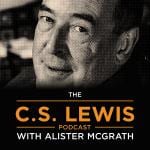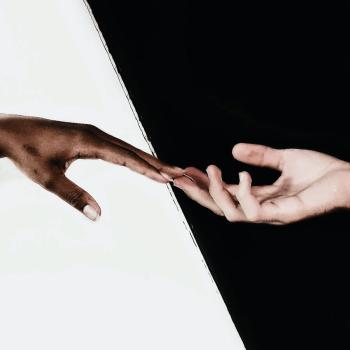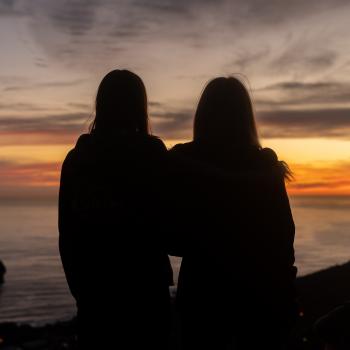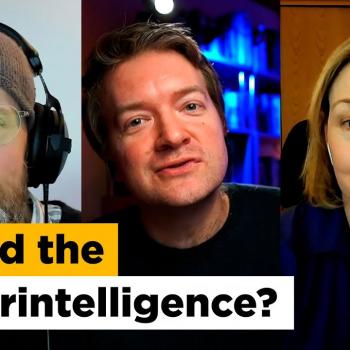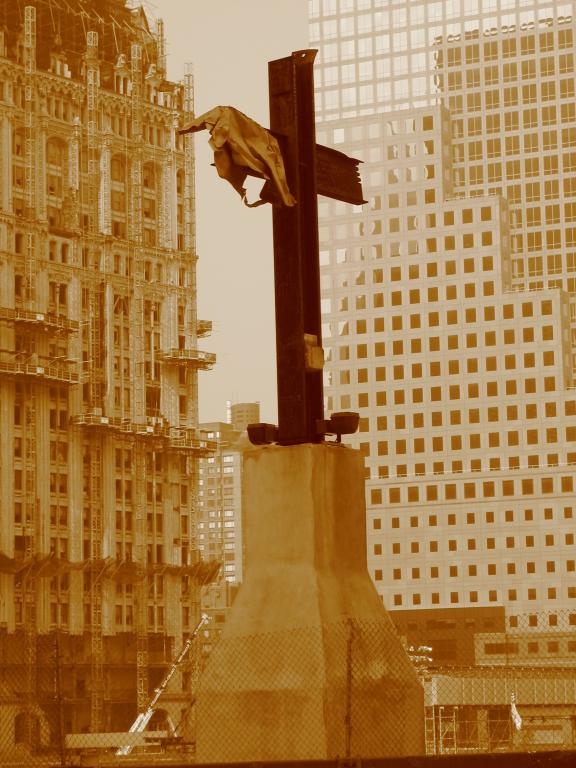
The pandemic has raised many big questions for young people. As we head into Holy Week, we can look to the Easter story for comfort. Patrick Regan OBE warns us not to rush straight past Good Friday to Easter Sunday. It may help questions our children have if we reflect on the brokenness of Holy Saturday.
My children recently asked some tough questions about unanswered prayer. I have stopped trying to come up with a textbook answer. Instead I reminded them of a long weekend my wife Diane and I made to New York.
We had always wanted to go to New York, and after someone kindly gave us some money and we saved up enough, we were able to go. While there we visited the World Trade Center memorial and museum where 2,977 people lost their lives after the terrorist attacks on 11th September 2001.
As you leave the museum, the last thing you see is what has been described as the Cross of Ground Zero – a 17ft-long crossbeam, weighing at least two tons, that was thrust at a vertical angle in the hellish wasteland like a cross.
Local priest Father Brian persuaded city officials to allow a crew of volunteer union labourers to lift it out of the wreckage and mount it on a concrete pedestal. Each week Father Brian held services there. He became the chaplain of the hard hats, and whenever crews working to find the dead needed a blessing of a prayer, Father Brian would offer it. Sometimes victims’ families came to pray. The congregation grew from 25 to 300 of different religions, ages and races.
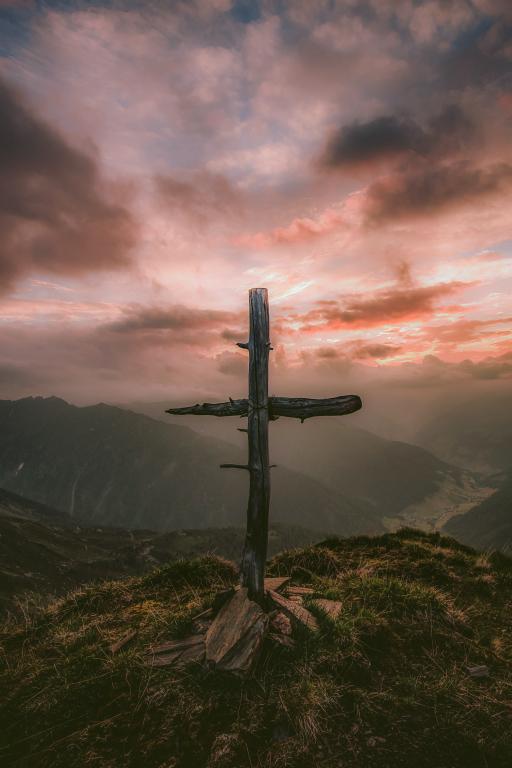 The priest says that in the days after 9/11, people were drawn to the cross as a sign that somehow death was not the final word. It was a place of lament, a place of questions, a place of what felt like unanswered prayers. There is surely no better place to ask questions than in the shadow of the cross, where you realise that God understands our pain, anxiety and questions.
The priest says that in the days after 9/11, people were drawn to the cross as a sign that somehow death was not the final word. It was a place of lament, a place of questions, a place of what felt like unanswered prayers. There is surely no better place to ask questions than in the shadow of the cross, where you realise that God understands our pain, anxiety and questions.
Easter Doubt
As I approach Easter my head is full of questions. More than ever, I am able to relate to Holy Saturday, the day between Good Friday and Easter Sunday where the disciples must have felt lost and filled with doubt, confusion, anger and despair. Most of us don’t like to think about Holy Saturday, we would rather dwell on Easter Sunday where we can sing ‘Oh happy day’. But by doing this, we are missing a huge part of what Easter is all about. The reality is: many of us are living day in, day out, our own Holy Saturday.
Some time ago, I wrote a book called When Faith Gets Shaken (Monarch) after going through a challenging time. We were dealing with so much, and I was done with being one of those people who says everything is OK when it’s not. The purpose of the book was to be real and honest. I was hesitant about writing it, but when the book came out I started to receive responses from people who were also struggling.
I was keen to explore the need for lament and the place for bringing all our questions, doubts, anger, pain, confusion and fear to God. We don’t get to choose when darkness comes into our (and our children’s) lives. The choice we have is whether or not we engage with the darkness, knowing that God meets us right there in our pain.
Encourage questions
Before we can start the journey, we need to know that it’s OK to ask questions. It’s an important part of lamenting (expressing our sorrow) and something we see repeatedly in the psalms (almost half of which are laments). David never held back in his honesty, and we frequently see other characters in the Bible questioning God too, trying to make sense of what he was doing and what his plan was.
I still feel guilty when I question God. Immediately a small voice says: “You don’t trust him enough” – and I try to silence my questions, only to find they don’t go away. Some of the psalms that ask questions are described as “psalms of disorientation”. I am a Christian leader who often feels that disorientation. Now, instead of feeling bad about myself and guilty, I am trying to realise that it’s OK, there is nothing wrong with not understanding everything.
Some of the psalms start with a cry so raw that it almost sounds like a howl, but David is engaging with God in his pain, rather than turning his back on him. There’s such a deep honesty here as he questions God; he doesn’t hold anything back in expressing his anger, disappointment and doubts. David seems to be saying: “God, are you ignoring my pain?” Yet in all his confusion and hurt, he still acknowledges God as his Lord.
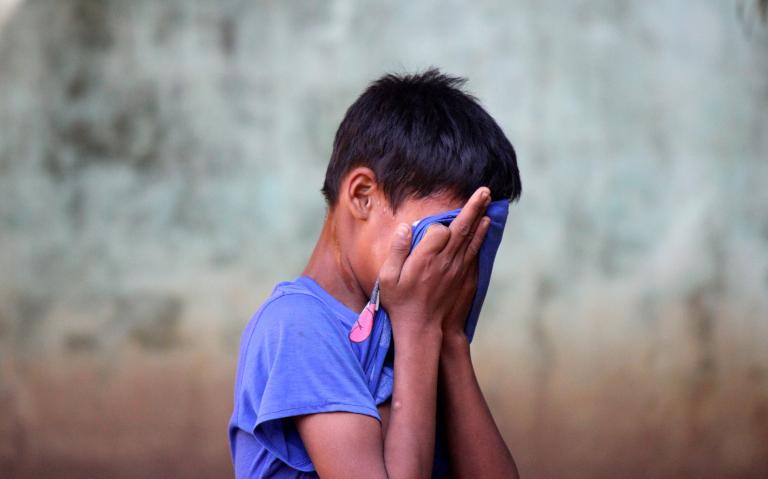 How often do we give ourselves, each other and our children space to journey honestly like this with God? Lamentation is a part of the grieving process, and as youth worker Mark Yaconelli points out in his book Disappointment, Doubt and Other Spiritual Gifts (SPCK), we’re not always very good at dealing with our grief. He says:
How often do we give ourselves, each other and our children space to journey honestly like this with God? Lamentation is a part of the grieving process, and as youth worker Mark Yaconelli points out in his book Disappointment, Doubt and Other Spiritual Gifts (SPCK), we’re not always very good at dealing with our grief. He says:
“If I were to name the suffering that exists in the West, it is un-grieved grief. It is an unwillingness to admit, to name, to embrace the pain of loss… Distracted from the reality of suffering, my heart hardens and I lose my capacity for compassion, I become less alive.”
If we don’t learn to grieve or lament properly, it’s very hard to forgive properly. When we’re hurt, we know the good Christian answer is that we must forgive – but if we try to rush that, we miss a vitally important part of the process. Grieving can bring freedom. It stops us from belittling the pain we’re in and allows us to express it, giving it the care and attention that it’s due, and from that place we can begin to move on.
When my children are going through a challenging time, I try to encourage them to ask questions – both of me and of themselves. To look back and reflect on situations or try to see a different perspective. We must take time to listen and value their feelings, while helping them realise that part of growing up is being able to cope with disappointment.
My four children grapple with questions in different ways, but one common thread is they all need to feel safe, to feel that no questions are off-limits. Each of my kids have different safe zones, where they feel they can be themselves. For my younger children, this is a coffee shop. On Father’s Day at church, when my youngest son was asked why he loved me, he said: “He takes me to Costa.” For my 17-year-old daughter, car journeys with me are the place she talks and for my 14-year-old son it could be anywhere – before we went into lockdown he asked me lots of questions about sex and faith while we were queueing after a football match with about 2,000 people listening in!
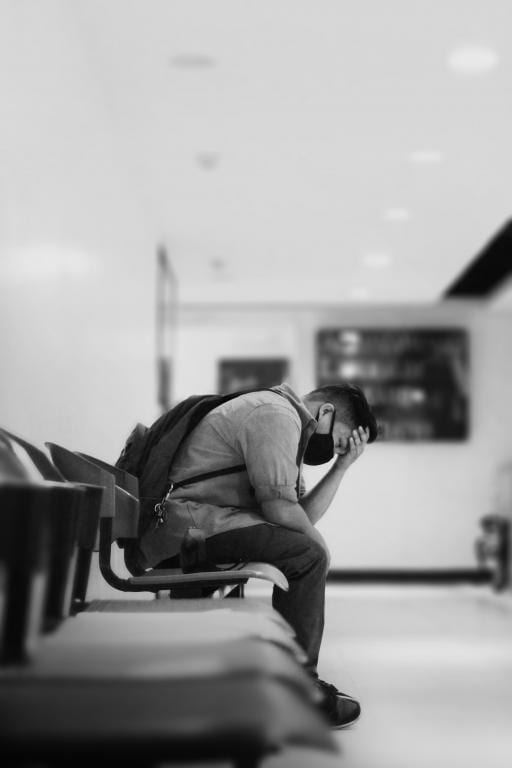
Don’t always try to fix it
Often when pain enters the lives of people we love, we want answers and we want to fix it for them. I recently walked into the kitchen and my younger daughter was sobbing. She lives with a visual impairment caused by nystagmus. On that day, she was having a hard time dealing with it. I instantly jumped into my ‘let’s find solutions’ mode. But my wife, Diane, looked at me and said:
“She doesn’t need you to find solutions, she needs you to hold her and just be her dad.”
It is so easy, as parents, to be distracted by the many demands we have on us. It has been said so many times that kids spell ‘love’ TIME. Our job is not to have all the answers (which we don’t!), it’s to make sure they know they are not on their own. Just being there, listening to them (not just hearing them) and loving them can make all the difference. More often than not, they have the skills and abilities within them to make good decisions and to find the answers, they just need someone to be with them to gently guide them and help them figure it out.
It’s OK to be broken
Throughout all of our doubts and questions, Diane and I spent a lot of time talking about the need to be open about our struggles to help people feel less alone in theirs. We recently started a charity called Kintsugi Hope in reference to the Japanese art of mending broken pots using a gold glue to make a feature of the broken places instead of trying to hide them.
We, as parents, are not perfect and don’t always have the answers, and that’s OK. Children learn so much through just watching our own responses and actions. As we learn to accept who we are, how much our loving Father loves us, including our scars and flaws, we will be living by example. Our honesty and vulnerabilities can be our biggest strengths and bringing up our children with these values and understanding will help them to live more resilient lives.
Patrick Regan OBE is co-founder of Kintsugi Hope (kintsugihope.com) and author of When Faith Gets Shaken and Honesty Over Silence: It’s OK not to be OK (CWR). This article is adapted from a piece Patrick wrote for Premier Youth and Children’s Work magazine.
Subscribe to the Unbelievable? podcast
Join NT Wright, Tom Holland, Josh McDowell and others online at the Unbelievable? conference on 15th May

